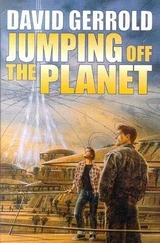David ed. - Face Off (2014) Anthology
Здесь есть возможность читать онлайн «David ed. - Face Off (2014) Anthology» весь текст электронной книги совершенно бесплатно (целиком полную версию без сокращений). В некоторых случаях можно слушать аудио, скачать через торрент в формате fb2 и присутствует краткое содержание. Год выпуска: 2014, ISBN: 2014, Издательство: Simon & Schuster, Жанр: Старинная литература, на английском языке. Описание произведения, (предисловие) а так же отзывы посетителей доступны на портале библиотеки ЛибКат.
- Название:Face Off (2014) Anthology
- Автор:
- Издательство:Simon & Schuster
- Жанр:
- Год:2014
- ISBN:9781476762067
- Рейтинг книги:4 / 5. Голосов: 1
-
Избранное:Добавить в избранное
- Отзывы:
-
Ваша оценка:
- 80
- 1
- 2
- 3
- 4
- 5
Face Off (2014) Anthology: краткое содержание, описание и аннотация
Предлагаем к чтению аннотацию, описание, краткое содержание или предисловие (зависит от того, что написал сам автор книги «Face Off (2014) Anthology»). Если вы не нашли необходимую информацию о книге — напишите в комментариях, мы постараемся отыскать её.
Face Off (2014) Anthology — читать онлайн бесплатно полную книгу (весь текст) целиком
Ниже представлен текст книги, разбитый по страницам. Система сохранения места последней прочитанной страницы, позволяет с удобством читать онлайн бесплатно книгу «Face Off (2014) Anthology», без необходимости каждый раз заново искать на чём Вы остановились. Поставьте закладку, и сможете в любой момент перейти на страницу, на которой закончили чтение.
Интервал:
Закладка:
And, of course, he roots for the Boston Red Sox.
Jack Reacher, on the other hand, is a Yankees fan. His background is vastly different from Nick’s, but equally scattered. Reacher is an army brat, raised on military bases around the world: a man without a country, but still an American. He’s a loner who avoids attachments, yet he’s absolutely loyal. He suffers no fools.
Nick Heller and Jack Reacher. Chalk and cheese, as the Brits say. Couldn’t be more different, yet so much the same.
Which can also be said for the two writers.
Lee and Joe are good friends. They share a love of writing, baseball, and the quest for America’s best hamburger. Not a gourmet burger. Just the best plain, honest, normal burger. Lee tells the story of some years ago when they were trying a contender in a Spanish restaurant (yeah, go figure) on Twenty-second Street in New York. The talk turned to upcoming projects and Joe started riffing, thinking out loud about maybe starting a series character. He gave Lee a lengthy and penetrating analysis that covered every cost and benefit, every desirable and undesirable characteristic, every strength and weakness.
“I wish I’d had a voice recorder running. I could have sold the transcript to Writer’s Digest . It would have become the Rosetta Stone for all such decisions,” Lee recalls.
Eventually, Joe followed through on his analysis with the first Nick Heller story, Vanished (2009), written with his trademark blend of freewheeling imagination mixed with iron self-discipline.
Lee is not a planner. He does not outline stories. They just emerge naturally. For Joe, that’s like walking on a wire without a net. So Lee came up with the premise of two guys in a bar in Boston. Reacher would be the out-of-towner, like always. Heller would be home, in the city he loves. Lee was taken by the notion of a mirror at the back of a bar—the way you can look at the reflection of the person next to you and talk with both intimacy and distance. Heller and Reacher would both end up talking to and about and around someone who’s in trouble. Eventually, they’d help the guy out, because that’s what they do. But that help would come in vastly different ways.
The story was written long distance. Lee sent the first chunk by e-mail and Joe immediately asked, “What do you see happening next?”
In typical Lee Child fashion he answered, “No idea. Until you’ve written it.”
Joe coped with such improvisation just fine.
Actually, their biggest problem was who would win the Yankees-Sox game that kicks the whole thing off.
Good and Valuable Consideration
THE BAR WAS A HUNDRED years old, built for an ink-stained subset of the working class. Clerks, scriveners, printers, and other office-bound wretches of every kind, who had once filled the narrow streets as they quit at the ends of long days in poor conditions, seeking solace wherever they could find it. Now it was just another Boston curiosity, full of dim light and glazed oatmeal-colored tile, and brass, and mahogany, most notably on the bar itself, where a length of tight-grained wood from a massive old tree had been polished to an impossible shine by a million sleeves. The only discordant decorative note was high on the bar back itself, but it was also the only reason Reacher was there: a big flat-screen television, tuned to a live broadcast of the Yankees at Fenway Park.
Reacher paused inside the door and tried to pick his spot. His eyesight was pretty good, so he didn’t need to be close, but in his experience flat-screens weren’t great when viewed at an angle, so he wanted to be central. Which gave him just one practical choice, a lone unoccupied stool among five in the middle section of the bar, which was more or less directly face-on to the screen. If it had been a theater seat, it would have been expensive. Front row, center. There was a dark-haired woman on its left, her back to the room, and a fat guy on its right, and then came a lean guy with short hair and muscles in his neck and his back, and on the right-hand end of the section was another woman, a blonde, with her high heels hooked over the rail of her stool. The lizard part of Reacher’s brain told him immediately the only one to either worry about or rely on was the guy with the short hair and the muscles. Not that Reacher was expecting trouble, even though he was in Boston, rooting for the Yankees.
The bar back was mirrored behind a thicket of bottles, and Reacher saw the short-haired guy spot him, just a blink of roving vigilance, automatic, which reinforced the message his lizard brain had sent. Not a cop, he thought, but some kind of a lone-wolf tough guy, very relaxed, very sure of himself. Ex-military, possibly, from the kind of shadowy unit that taught you to glance in mirrors from time to time, or suffer the consequences.
Then the fat guy on the right of the empty stool looked in the mirror, too, much more obviously. He was not relaxed. He was not sure of himself. He kept his eyes on Reacher’s reflected image, all the way through the trip from the door to the empty stool. Reacher slid in beside him and rocked from side to side, to claim his space, and he put his elbows on the mahogany, and the fat guy half turned, with a hesitant but expectant look, as if unsure whether to speak or wait to be spoken to. Reacher said nothing. He rarely offered greetings to strangers. He liked to keep to himself.
Eventually the guy turned away again, but he kept his gaze on the mirror, not the screen. He had a prominent lower lip, sticking out like a pout, and then a great wattle of flesh fell away in a perfect parabola to his shirt collar, uninterrupted by any kind of bony structure. The pneumatic impression continued all the way to his dainty feet. The guy was like a balloon made of flesh-colored silk. He looked like he would be soft and dry to the touch. He had a wedding band on his left hand, deep in the fat, like a sausage with a tourniquet. He was wearing a suit made of the same material as chino pants. The waistband could have been sixty inches.
Reacher looked up at the game. The top of the first was over, no hits, no runs, one man left on base. The commercials were starting, first up being a leasing offer on a brand of automobile Reacher had never heard of. The barman finished up elsewhere and scooted over sideways and Reacher asked for a full-fat Bud in a bottle, which he got seconds later, ice cold and foaming.
The fat guy said, “I’m Jerry DeLong.”
At first Reacher wasn’t sure who he had been addressing, but by a process of elimination he figured it was him. He said, “Are you?”
The guy with the short hair and the muscles was watching the exchange in the mirror. Reacher glanced at his reflection, and then the fat guy’s, who looked straight at him via the glass. Barroom intimacy. Eye contact, but indirect.
Reacher said, “I’m here to watch the game.”
Which seemed to satisfy the guy. He looked away, as if an issue had been settled. His gaze returned to the mirror. The various angles of incidence and reflection were hard to calculate, but Reacher figured the guy was watching the door behind him. He was giving off a low-level buzz of anxiety. His eyes were pale and watery. But the rest of him was composed. His huge, pale face was immobile, and his body was still.
The commercials ended, and the broadcast returned to Fenway. The little green bandbox looked luscious under the lights. The Yankees were in the field, in road gray. Their pitcher was throwing the last of his warm-ups. He didn’t look very good.

NICK HELLER HAD ENTERED THE bar three minutes earlier, and had immediately picked up on the after-work vibe, the frenzied high spirits, the smell of sweat and cologne and beer and unwinding anxiety. It was like walking into a party at its very peak: the disorienting cacophony of chatter, the nearly deafening babble, the whooping laughter.
Читать дальшеИнтервал:
Закладка:
Похожие книги на «Face Off (2014) Anthology»
Представляем Вашему вниманию похожие книги на «Face Off (2014) Anthology» списком для выбора. Мы отобрали схожую по названию и смыслу литературу в надежде предоставить читателям больше вариантов отыскать новые, интересные, ещё непрочитанные произведения.
Обсуждение, отзывы о книге «Face Off (2014) Anthology» и просто собственные мнения читателей. Оставьте ваши комментарии, напишите, что Вы думаете о произведении, его смысле или главных героях. Укажите что конкретно понравилось, а что нет, и почему Вы так считаете.












